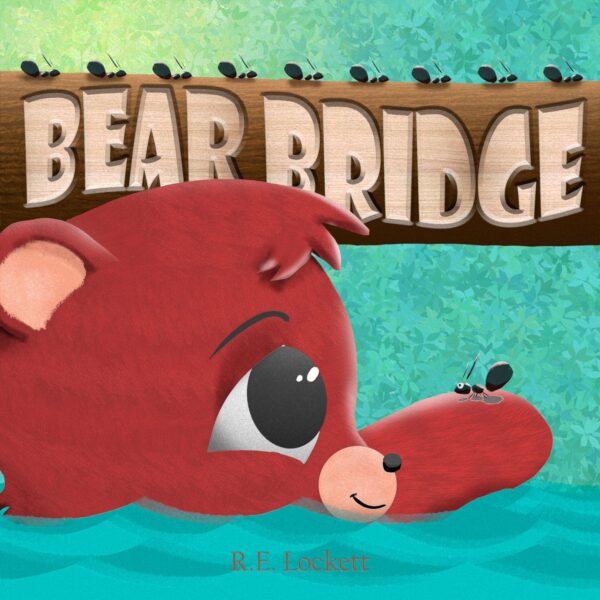Your cart is currently empty!
For the Love of the Library

in
Disclaimer: This post may contain affiliate links for books we recommend. If you make a purchase through these links, at no additional cost to you, we may earn a small commission. See our full Terms of Use here.
If you’re a student and you don’t have a library card, stop reading this and go to the library immediately. You do not know what you’re missing out on. Sure, libraries contain books—lots of them—but their collections reach beyond bound paper. That makes them so much more than just bookstores or even secondhand shops.
Your library card is actually worth hundreds of dollars. It’s true–just not in the monetary sense. Your library card, which grants you access to virtually all the information in the world through book-borrowing, magazine-reading, and free internet browsing privileges, gives you access to more knowledge than you could ever use in an entire lifetime. The value of your library card goes far beyond books! Here are just a few examples of what you can do with your library card and where it can take you…
A Library Society
When libraries first hit American cities, they were more than just book repositories. These spaces served as a community meeting place for neighborhood residents to gather, as education centers for youth and as sanctuaries from a city’s overwhelming population. Today, many of these roles still exist in libraries across America. In fact, your library may provide resources and services you don’t even know about yet! (So maybe grab that library card again.)
As a society, we thrive when the masses have access to education. Without it, people cannot make informed decisions about their future and their country’s future. Libraries are more than just book repositories. They’re an essential part of our culture and our democracy. When you think about it that way, isn’t your library card worth a little love?
Unsung Heroics
Most library funding comes from taxes. Every time you use your library card, not only are you learning new things, you’re helping your community. There’s a reason they call it your library—you’re an important part of it!
So why don’t we know more about our local libraries? We can rely on them so much that we forget how valuable they are. Librarians work with government organizations (libraries receive much of their budget from local governments) which makes their position within our society seem less central than it actually is. If libraries disappeared tomorrow, the impact would be devastating. Libraries help us learn, grow, connect with others, fall in love with reading again…and sometimes even save lives. They provide vital resources at little cost to users—resources that would otherwise be inaccessible because of financial constraints.
World Wide Web
Many libraries now offer free internet access to all patrons, a boon for students and people looking for jobs. Although libraries receive taxpayer funding, it’s up to each municipality to determine whether they offer free internet; so it varies from community to community. Still, there’s no reason you can’t speak up for your local library when budget time rolls around.
If you’re lucky enough to live in an area where residents enjoy free internet at their local library, consider volunteering at a branch near you. It might be a good way to network with other like-minded individuals who want to see their community thrive.
Database Access
The biggest reason for library use today? Databases. Your public library card grants you access to a treasure trove of books, movies and other media. While many are familiar with these resources, they might not know that many public libraries provide patrons with several free databases that can be just as valuable as print materials. Whether you’re writing a report, doing research for a class or looking to contact someone you’ve just read about online, public libraries can provide access to e-journals and databases that would otherwise be out of reach. These databases often include scholarly journals and articles, which may not be available through other sources.
A single digital card gives you access to more than just e-books. It provides links to journals, newspapers and websites that are usually restricted behind paywalls. In addition, some offer full-text copies of older newspapers or magazines—perfect for those who want to learn more about history. If you have questions about how to find specific resources on your library’s website, ask at your local branch! Many librarians have experience with finding information in specific fields. They might even have tips on how to search better. And if they don’t know an answer offhand, they will probably know where to look it up.
Tech Support
The internet has been very good for us. The ability to look up any fact or figure in seconds has made our lives immeasurably easier and more efficient. Even with all of that convenience, many of us still feel like something’s missing—like we’re only getting a fraction of what we really need from our research sources. But why? Often, it comes down to a lack of context and perspective.
When you search for something on Google or Wikipedia, you might get 10 results back but only see a small bit of information about each topic. This can be an issue if you’re trying to get a big-picture view of things: What do all these unique pieces have in common? How are they connected? What do they tell us about where they came from and how they compare to other pieces we haven’t found yet? If you want more than simple answers, libraries can help.
Libraries have librarians on staff who can help you find information quickly and even provide expert tech support. Public libraries partner with many websites to offer free online research services and free study spaces. They give you context and insight into your questions that online searches simply can’t deliver on their own. They help connect everything together so it makes sense. As anyone who’s ever had an Aha! moment at their library will tell you, having insight into your life can be invaluable when it comes time to make decisions later on.
Reservations
One of my favorite things about a library card is that it can hold me over until I’m able to purchase an item or get around to reading something. In fact, many libraries will even reserve books for patrons if they’re checked out so that you don’t have to wait in line when they become available. If a popular book is not currently available at your local library, you can always reserve it. It’s as simple as checking out books. Once they became available (which usually takes 1–2 weeks), you’ll get notified and can swing in to pick up your next great read.
Many public libraries also provide e-readers for checkout so you can load up on free books while you’re there. Many library systems are adopting digital lending policies similar to those of their book counterparts. Having access to your local branch’s resources could put thousands of dollars’ worth of books at your fingertips. You can download eBooks from major and indie publishers. It’s important to note that some titles aren’t available because of publisher restrictions. Most popular titles are available in eBook or audiobook formats. It’s a great way to get started with digital books if you’re looking for an alternative to purchasing them outright.
Classes in Session
Most libraries offer some sort of classes for residents. If you’re looking to learn how to use technology, get a head start on college prep or improve your computer skills, check out what your library offers. If there aren’t any classes available, ask your librarian about having an in-house speaker come in for a presentation about something that would be beneficial to you and others.
Besides these types of activities, many libraries also have book clubs and support groups. Take advantage of them! They can be great opportunities to meet new people and form connections with those who share similar interests. If you find yourself stuck on a project or assignment, consider visiting your local library. Chances are good that they offer free one-on-one assistance. All it takes is a quick visit to their website or stop by during open hours to see what they offer.
Urban Landscapes
Libraries are increasingly becoming hubs for social interaction and gathering places, thanks to a growing number of programs aimed at bringing together different generations and cultures. As budgets tighten and spaces get smaller, it’s nice to know that some things remain constant. A library card will always open doors beyond bookshelves—beyond even our wildest imaginations. As people flock back into cities, public institutions (like libraries) are also getting a much-needed reprieve from urban sprawl.
The accessibility of libraries within city limits means people can step off public transportation and interact with others face-to-face rather than through social media alone. This is especially important for young children who need to be around other kids in order to develop socially. In fact, studies have shown that children who take part in after-school programs at their local library are more likely to graduate high school than those who don’t. They’re also less likely to get involved in poor decision making as teens.
Safe Spaces
Books aren’t everything in libraries, and they never have been. Growing up in the inner city meant fewer safe spaces for me to go to. The library provided a sanctuary away from all the chaos in the streets. It was a place where I could read, do homework, and even just play video games without having to worry about gang violence or peer pressure. It was like a second home for me growing up. To this day, I feel a sense of calm fall over me when I enter a library.
A library card represents more than access to books. It’s access to knowledge and opportunity that can be life changing. Libraries are safe places for people who may not have many other opportunities available to them. For some, it’s their only connection to education, recreation, and entertainment outside of their own homes. Many urban communities lack recreational centers and after-school programs designed specifically for youth, but public libraries are there to fill that gap. They provide an environment that fosters learning and creativity for children and adults alike.
Get Down to the Library
The next time you’re at your local branch, remember that your library card represents more than just access to books. It’s access to an entire world of information beyond what’s on those shelves! People who visit libraries often find themselves surrounded by books they want to read but might not have otherwise picked up on their own.
Libraries provide access to information that could change how we see ourselves, our communities, and our world. They offer new perspectives on current events, historical figures or other cultures from around the globe. The public library system is one of America’s greatest inventions—and it’s all available for free. Imagine what you can learn if you stop in today!
-R.E.

